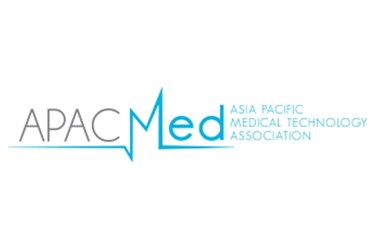Industry Leaders Form First Medical Device Trade Association In Asia

Some of the biggest names in the medical device industry are joining together to present a united voice in the Asian Pacific market. The newly formed Asia Pacific Medical Technology Association (APACMed) will collaborate with local regulators, policymakers, and stakeholders to create innovative solutions to regulatory obstacles, promote local talent, and address currently unmet medical needs in the region.
Member companies include Boston Scientific, Cardinal Health, GE Healthcare, Johnson & Johnson, Medtronic, Philips, Siemens, Stryker, Zimmer, Abbot, Baxter, and Becton Dickinson. According to a press release, the group only includes companies from Western countries at this point but is looking to expand and include other multinational and locally owned Asian medical device makers.
“This is the first time we have combine our efforts to drive access, innovation, and collaboration in order to benefit patients in Asia Pacific. We welcome medical technology companies and associations with a similar vision to join us,” said Vladimir Makatsaria, the new association’s chairman.
Fredrik Nyberg, APACMed CEO, told the Wall Street Journal (WSJ) that the association was speaking with a number of companies in Japan, Korea, China, and Singapore, along with a similar association operating in India.
Though there are medical technology groups currently working in the U.S. and European market, WSJ reports that this is the first medical device trade group to operate in Asia-Pacific because historically the region has been so fragmented.
According to Nyberg, the region is changing, and a growing number of Asians want and are able to afford the latest in technological advances. However, there are obstacles that stand in the way of their access.
Issues on the association’s agenda include the time-consuming regulations that the Chinese government introduced last year that can stall the market release of a medical device for two years.
In other regions, the association wants to address a disjointed and inconsistent medical infrastructure and the lack of training in recent device innovations.
Kevin Lai, executive director of the Biomedical Sciences and Consumer Businesses in the Singapore Economic Development Board, said in the press release that APACMed could allow the already growing Asian market to flourish.
“Many leading medical device companies have established their regional headquarters as well as innovation centers in Singapore. We welcome the establishment of APACMed in Singapore and we believe it will strengthen the medical device industry’s efforts in driving innovation and talent development to better address the healthcare needs in the region,” said Lai.
“At the end of the day, healthcare is an extremely important part of our economy and part of our society. Healthcare is facing a major challenge moving forward globally but in Asia even more so,” APACMed’s Makatsaria told the WSJ.
